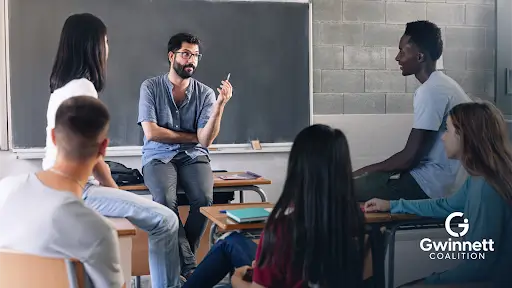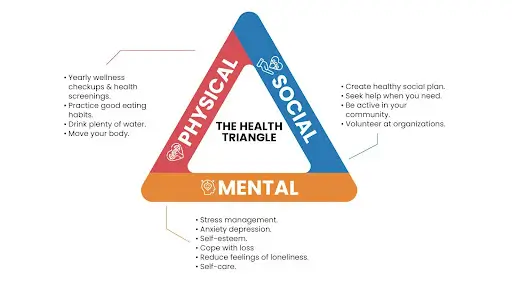Health Literacy: Essential In Today’s World

In an era where health information is at our fingertips, the ability to effectively comprehend and utilize this data—known as health literacy—plays a pivotal role in our well-being. Health literacy is not merely about reading pamphlets; it’s about making informed decisions that affect our health.
The goal for the future is to make sure everyone has some degree of health literacy, allowing communities all over the world to make better decisions while understanding the importance of healthcare worldwide.
This blog delves into the concept of health literacy, its significant impact on public health, and the initiatives led by organizations like the Gwinnett Coalition to improve health literacy in communities.
What is Health Literacy?

Health literacy is the ability to obtain, read, understand, and use healthcare information to make appropriate health decisions and follow instructions for treatment. Effective health literacy can dramatically influence personal health outcomes, aiding individuals in preventing health issues, managing existing conditions, and making informed medical decisions.
It’s worth noting that very few people are well-versed in health literacy issues since the topic itself is not widely discussed and, to this day, remains a very niche subject that not many communities have started to address. The goal is to change that.
Health literacy is one of the five key areas of the Healthy People 2030 (OASH) Framework to improve health and well-being for all people.
Good health literacy helps you:
- Make smart decisions about your health.
- Avoid getting sick by staying up-to-date on things like vaccines and check-ups.
- Manage health conditions, like diabetes or high blood pressure.
- Save time and money by knowing when and where to seek care.
Why Health Literacy Matters
The importance of health literacy extends beyond individual health outcomes. It is a critical element in the efficiency of healthcare delivery and systems. Individuals with high health literacy are better equipped to manage their health, adhere to treatment protocols, and navigate the complex healthcare system.
Simply put, those who have understood the complexities of healthcare systems, for example, are more likely to completely follow treatment instructions, leaving little to no room for further medical complications down the road.
The Impact of Low Health Literacy

The consequences of low health literacy are profound. According to data from the Centers for Disease Control and Prevention (CDC), individuals with low health literacy experience a range of negative health outcomes, including:
Increased Emergency Visits and Hospital Stays: Low health literacy is linked to higher utilization of emergency services and prolonged hospital stays, even when deemed not necessary by medical professionals.
Medication Errors: Difficulty understanding medication labels and health information can lead to significant and dangerous errors. Overdosing is a serious issue that can arise from a lack of medical literacy, causing severe side effects, and even death.
Higher Mortality Rates: Studies indicate that low health literacy may contribute to higher mortality rates among the elderly. From mixing medications that should never be taken together to engaging in risky behaviors while on treatment.
Financial Strain: Research suggests that individuals with low health literacy may incur up to $7,000 more in annual healthcare costs than those with adequate health literacy. This is because these individuals make expenses that could be avoided with proper education.
These impacts highlight the need for improved health literacy, which could save the healthcare system billions of dollars annually by reducing unnecessary hospital visits and improving disease management.
Other Resources: The Health Triangle
Health is the overall measure of your body’s physical, mental, and social well-being. The health triangle is a visual tool that helps understand the 3 sides of your health: social, mental, and physical. A balanced health triangle means all 3 elements of your health are receiving equal attention and care.
Just as the sides of a triangle are connected, so is our health. If one side is out of balance, the other sides are affected when we neglect aspects of our health that contribute to our overall health. For example, feeling lonely or overlooked can hurt your mental and social health.

Interested in knowing more? Take this quiz to assess if your health triangle is balanced or read the following tips!
Gwinnett Coalition’s Health Literacy Workshops
Recognizing the importance of health literacy, Gwinnett Coalition is proactively working to enhance health literacy through community workshops. These workshops aim to equip residents with the necessary skills to manage their health effectively. Topics covered include understanding prescription drug labels, navigating health insurance processes, and accessing community health resources.
The initiative is part of a broader effort to advance health equity in the community by ensuring all members, regardless of their background or education level, have the tools to manage their health.
Those interested in participating or learning more about these workshops can contact info@gwinnettcoalition.org
Improving health literacy is a community-wide responsibility that requires collaboration among healthcare providers, public health officials, educators, and community organizations. By investing in health literacy, we can enhance health outcomes, reduce healthcare costs, and promote a healthier, more informed society.
The ongoing efforts by entities like Gwinnett Coalition are commendable and essential in moving towards a more health-literate public. Everyone has a role to play in this important issue. Whether by educating ourselves, participating in community workshops, or simply spreading the word, we can all contribute to better public health.
For more information on how to become part of the movement toward a more informed community, visit https://gwinnettcoalition.org/ and discover what you can do to take a stance and improve the future of everyone around you.
What We Do
© 2023 Gwinnett Coalition. All Rights Reserved
